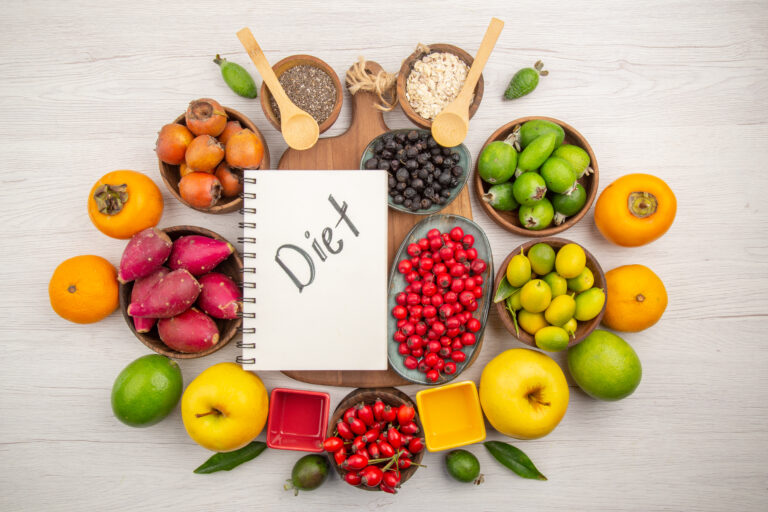10 Foods to Boost Your Gut Health: A Simple Guide
A healthy gut is key to good health. Trillions of bacteria, viruses, and fungi make up the gut microbiome. They live in your large bowel, most often settling in a spot called the cecum. These microbes work like another organ helping break down food and take in nutrients while boosting immune health. A healthy balance of gut microbiomes raises energy levels, fights infections and stops stomach problems from starting. The state of your gut health depends much on what you eat. Here are 10 nutrient-rich foods that will support good gut flora to aid digestion picked with an eye toward making better health easier for all.
Why Gut Health Matters
A healthy gut will mean proper digestion, and when there is good digestion, nutrients are absorbed well to generate energy in the body. Good bacteria in the gut help break the food down, reduce inflammation in the body, and keep harmful microbes at bay. Symptoms of poor gut health may include bloating, constipation, diarrhea, or low immunity. The right food selection can help improve the condition of the gut microbiome and hence overall health.
Top 10 Foods for Better Gut Health
Ten foods that can help you maintain a healthy gut are discussed below. These foods contain fiber, probiotics, and nutrients that feed good bacteria and promote digestion.
1. Whole Grains
Wheat, oats, and barley are sources of Whole grains, thus they provide a good amount of fiber, antioxidants, and micronutrients. They work as prebiotics and they support the growth of good bacteria in your gut. This improves digestion and prevents constipation. You can add whole grains to your daily meals that may include breakfast in the form of oatmeal or whole-grain bread at lunch.
2. Yogurt
Yogurt is an extremely rich source of probiotics. Probiotics are live microorganisms that tend to promote healthy gut flora and reduce such conditions as bloating, gassiness, constipation, or diarrhea. Plain unsweetened yogurt will ensure there are no added sugars-consume it in a smoothie, breakfast bowl, or as a simple snack to add a friendly boost for your gut.
3. Pears
Pears deliver good amounts of vitamins C and K. Soluble and insoluble fiber are also present in this fruit. This fiber will assist in keeping regular bowel movements by keeping the digestive tract working properly. Eat a pear for a snack or throw it onto salads—an easy way to better gut health.
4. Almonds
Almonds contain a lot of fiber and healthy fats plus vitamin E. They are considered prebiotic food because they feed good bacteria, helping in easy digestion and general well-being. Just take them as a snack or sprinkle them on meals; a handful will do some good to your intestines.
5. Bananas
Bananas are a favorite fruit. They are known for their fiber, and inulin-a prebiotic that supports good gut flora. They also offer pectin. This component helps control cholesterol as well as bowel function. Bananas will soothe digestive disorders-easy on the stomach and reflux-so add them to your diet.
6. Avocados
Avocados are superfoods with more potassium, healthy fats, and micronutrients which support the development of a healthy stomach and also ensure between-meal satiety. Just put avocados on toast, into a salad, or mix them in a smoothie.
7. Ginger
Ginger has for centuries, treatments of digestive maladies. It contains anti-inflammatories, antibacterials, and antioxidants such properties by which digestive enzymes are activated and the gut lining is soothed. Sip ginger tea or fresh ginger added to meals as a prescription for healthy digestion.
8. Olive Oil
Olive oil has in its composition of fatty acids and polyphenols an agent that reduces inflammation of the gut while promoting good bacteria. Make a switch to olive oil for cooking or drizzling over salads as a simple method supporting your gut and having other health benefits.
9. Leafy Greens
Leafy greens high in content include spinach, broccoli, and kale with vitamins, minerals, and fiber. They offer good gut health while nutrients inside them help in the regulation of blood pressure and in prevention from getting obese and heart diseases. Throw your leafy greens in a salad, stir-fry, or smoothie for an easy way to get all those nutrients.
10. Consult a Doctor
Though these foods are generally considered ideal for the average individual, one has to remember that requirements for gut health vary from person to person. A medical practitioner is going to assess your general condition and offer a specific plan of diet that will tweak the benefits of good health for your gut. Eating these foods in combination with advice from an expert brings about optimal results.
How to Add These Foods Into Your Diet
It is easy and sustainable to add such gut-friendly foods into meals. Here go some practical tips:
- Begin your day with grains. Have oatmeal with bananas and almonds for breakfast to add more fiber.
- Eat a pear, some yogurt, or just a handful of almonds, and keep these easy snacks on hand so that you can snack smart and add more good things for your gut.
- Use olive oil in cooking vegetables, and throw ginger into soup or stir-fry.
- Throw spinach or kale into a smoothie, salad, or side dish to pack in the nutrients.
- Eat Avocados: Mash avocado on toast or mix it as a base for a creamy salad dressing.
Results of a Gut-Solid Eating Routine
Eating these food sources supports something beyond your stomach. A healthy gut microbiome can:
- Aid in digestion and relief from feelings such as bloating or constipation.
- Good immunity since good bacteria support fighting infection.
- Better absorption of nutrients, hence more energy.
- Reduced rates of chronic diseases.
Begin Your Gut Wellbeing Excursion Today
Improving gut health does not require major overhauls. Add these 10 foods to your daily diet and you will be nourishing the gut microbiome, supporting digestion, and feeling better all around. Start by adding just one or two, perhaps some yogurt and bananas, to your daily fare at the table-every day. Over time, try more options that will develop into a balanced, gut-friendly diet. For expert advice tailored specifically to individual needs concerning diets relating to health issues, consult a healthcare professional specific to your needs. Your gut—and your body—will thank you!






